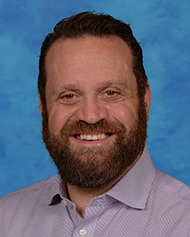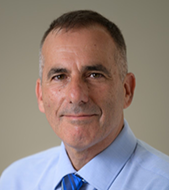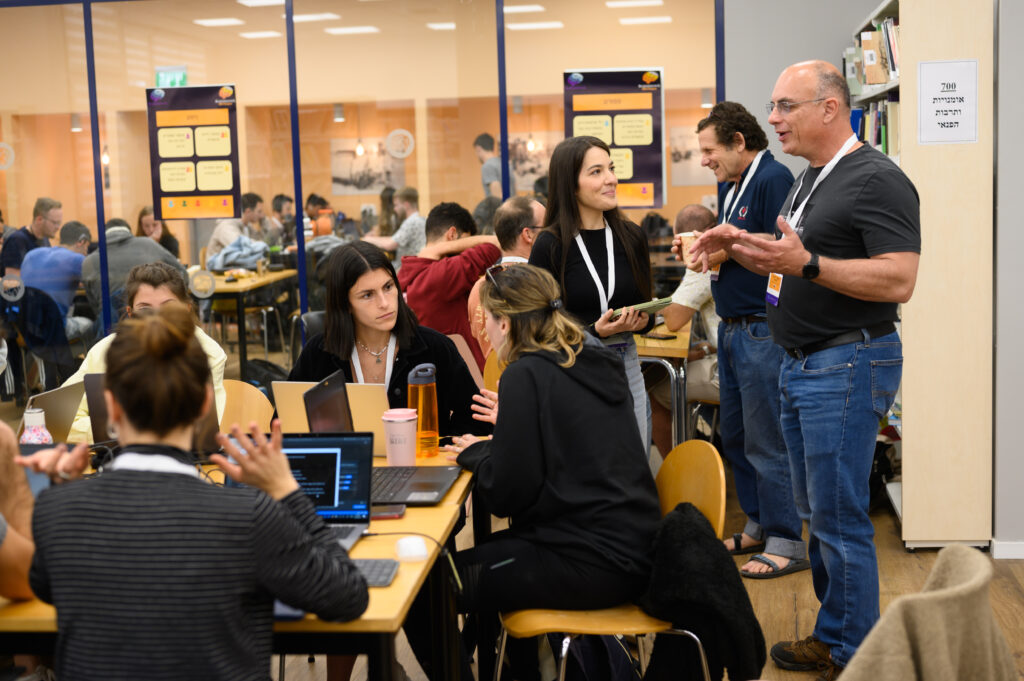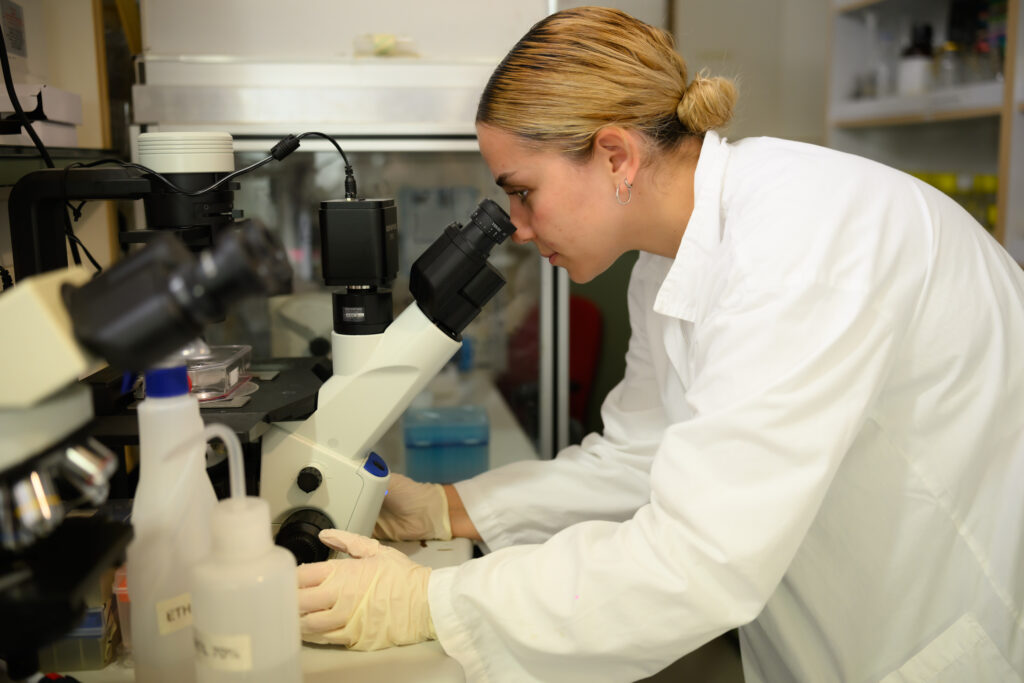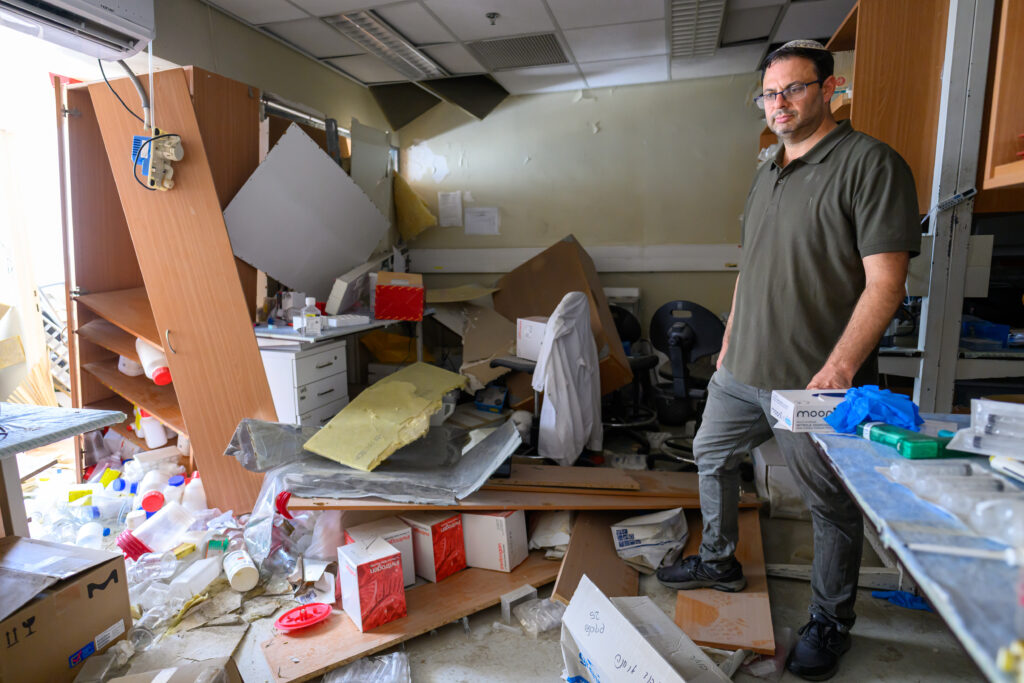
Rabbi Joshua Gruenberg and A4BGU: Frontline Conversations
Rabbi Joshua Gruenberg and A4BGU: Frontline Conversations
September 26, 2025
Rabbi Joshua Gruenberg and A4BGU: Building Lasting Connections Beyond Crisis—When Rabbi Joshua Gruenberg first learned of Americans for Ben-Gurion University (A4BGU), it wasn’t just another organization vying for space in an already crowded Jewish communal calendar. It was, for him, an invitation into a story that reached both deep into Jewish history and forward into Israel’s future.
“I’ve always been very enamored with the desert in Israel,” says Rabbi Gruenberg, the leader of Chizuk Amuno Congregation in Baltimore. “From a Jewish perspective, everything important in the Torah happens there—the burning bush, the giving of the Torah, the golden calf. The desert is a metaphor for a quiet space where you can see things clearly.”
That metaphor—of finding clarity and hope in difficult terrain—has shaped his embrace of A4BGU and his eagerness to introduce the Baltimore-based synagogue he leads, Chizuk Amuno Congregation, to the mission of Ben-Gurion University of the Negev (BGU).
From Barren Wasteland to Booming Center
For Rabbi Gruenberg, the Negev desert itself is a symbol of the extraordinary resilience and creativity of Israel. “The desert might be the greatest example of the success of building the State of Israel,” he says. “This was a barren wasteland that ostensibly nobody wanted, and it turned into a booming center of Jewish life.”
That transformation, he explains, mirrors the aspirations of his congregants, many of whom are doctors, scientists, and academics who understand the power of research and innovation. The Baltimore-area Jewish community—home to institutions like Johns Hopkins University and the University of Maryland—includes a large medical population. Rabbi Gruenberg sees a natural connection between these professionals and the groundbreaking work happening at BGU in fields such as medicine, water technology, and sustainability.
“There’s so much happening at Ben-Gurion University that people here can connect to—especially in the medical world,” he says.
Cultivating Long-Term Bonds with Israel
As the horrific events of October 7th and the ongoing war in Israel continue to loom large over Jewish life today, Rabbi Gruenberg believes that acknowledging trauma is necessary, but that Jewish identity cannot be defined by tragedy alone.
“We can’t have a Jewish community that bases its identity off the tragedy of October 7th, because that will end,” he says. “Israel is bigger than any one of its wars. In this moment, people are thirsting for a connection to Israel. We have to give them something long-lasting.”
For him, BGU offers exactly that: a way to anchor Jewish identity in progress, innovation, and hope. “What’s happening at Ben-Gurion University is substance—things people can connect to long-term, as opposed to just reactionary,” he says.
This vision will come to life at Chizuk Amuno on Thursday, October 16th, when the congregation and A4BGU are hosting Frontline Conversations and the Way Forward—an event where attendees will discover how BGU leads as the Negev’s anchor institution and a beacon of hope for all of Israel. In the wake of October 7th and the Iranian missile attacks, BGU was thrust onto the frontlines. With resilience and resolve, the University mobilized its experts in emergency medicine, trauma response, and mental health to support Israel’s hardest-hit communities.
The event will feature Jeff Kaye, Vice President for Public Affairs and Resource Development at BGU, and Michelle Stravitz, CEO of the American Jewish Medical Association. Together, Rabbi Gruenberg says, they will offer “a sober feeling of hope.”
“Jeff can highlight the Israeli people and their incredible response to crisis,” he says. “Michelle will acknowledge the challenges we face here in America and what the medical community is doing in response. The balance of those two perspectives gives us realism, but also optimism. That’s where I want us to focus.”
Baltimore, Medicine, and Israel: A Natural Partnership
For Baltimore’s Jewish medical professionals, the connections to BGU are especially relevant. The University is home to world-class research in desert medicine, public health, and technological solutions with global impact. Rabbi Gruenberg sees the potential for his congregants to engage with Israel not just as observers of political conflict, but as partners in progress.
“We have a very large doctor population in Baltimore,” he says. “The best thing we can do is give these people something substantial, something they can connect to that will last long beyond the current moment.”
Looking Ahead
Rabbi Gruenberg has not yet traveled to Israel with A4BGU, but he anticipates that his congregation’s partnership with the organization will open doors for deeper communal engagement. Already, Chizuk Amuno organizes trips to Israel, and some congregants have made Aliyah. Strengthening ties with BGU provides another layer of connection.
Ultimately, his hope is that by spotlighting BGU’s work, he can help reshape how his community relates to Israel—less defined by crisis, more sustained by innovation and creativity.
“Those of us who’ve had a relationship with Israel since we were teenagers know that our connection has nothing to do with conflict and everything to do with the amazing experiences we had there,” Rabbi Gruenberg reflects. “Communally, we have to help shift that perspective. That’s one of the great positives of this partnership.”
REGISTER HERE for “Frontline Conversations and the Way Forward,” a free event on Thursday, October 16th, from 7-9 p.m. at Chizuk Amuno Congregation. The program will include a Negev wine reception.

